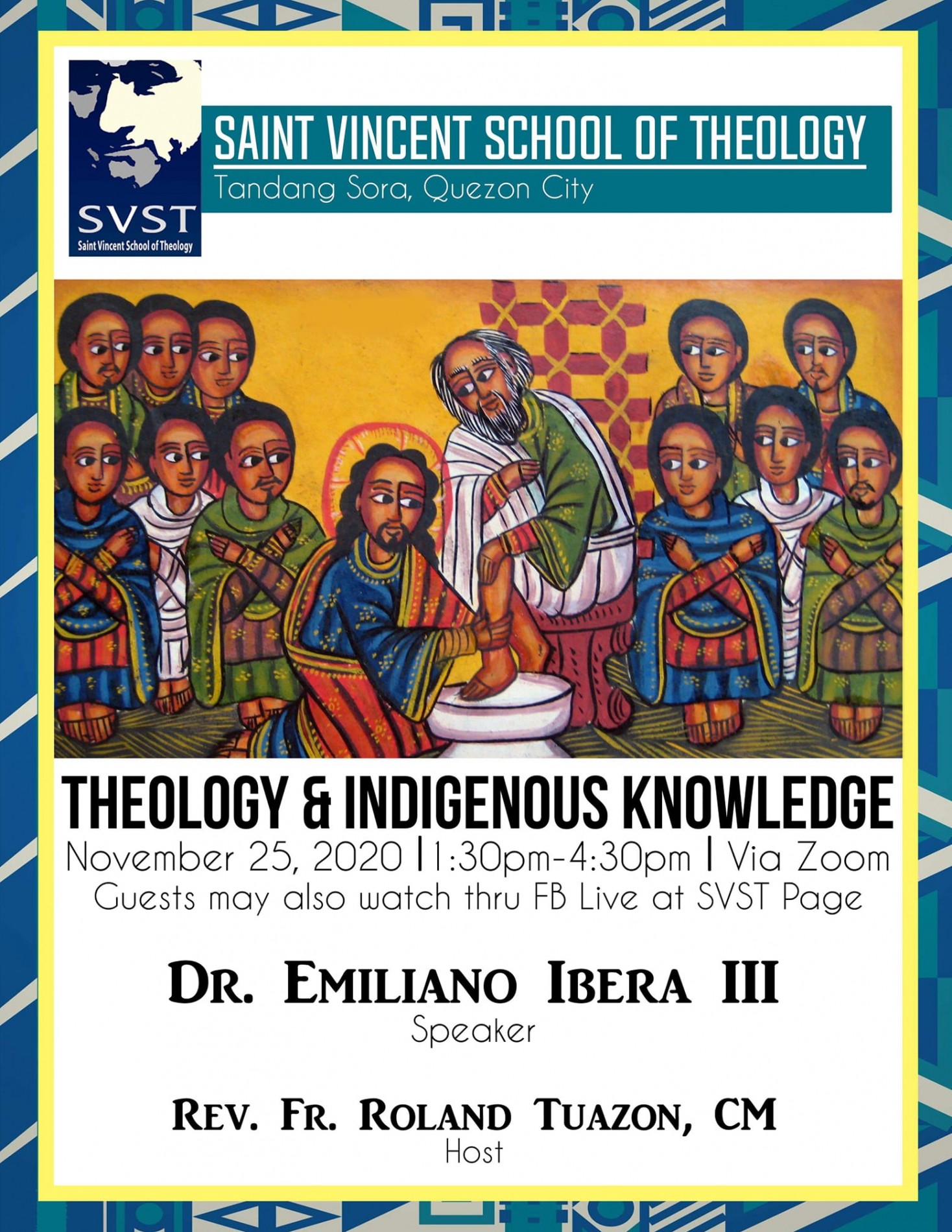
THEOLOGY AND INDIGENOUS KNOWLEDGE: Academic Conference 2020
Dr. Emiliano Ibera III delivered this online conference on November 25, 2020 to SVST students via Zoom and FB Live Streaming. This lecture is part of the results of his research with the Ayta communities in Floridablanca, Pampanga. He asks this main question: "What does it mean for a theology of mission to be grounded on indigenous knowledge?" After more than five decades, one can argue that there is a great advancement in terms of the promotion and protection of the rights of cultural minorities, also known as indigenous peoples (IPs). The United Nations, for instance, makes its firm commitment to promote, respect, and protect indigenous people’s rights through the United Nations Declaration of Rights of Indigenous Peoples (UNDRIP). Other good initiatives came out, including local ones. What is not so much explored and emphasized, however, is the value that the indigenous peoples could contribute to many problems that humans confront today (e.g. climate change, food sufficiency, ecological balance, etc.). To learn from the indigenous peoples may be the least (or not at all) of concerns among lowlanders who can be educated in the universities. Is there anything good that comes from them? This paper argues that there is significant value from the indigenous peoples, from the Mag-indi Ayta in particular. Their indigenous knowledge is a treasure they contribute to our global and ecclesial concerns. This paper then endeavors to address the following basic questions: First, what is indigenous knowledge? Second, what does it mean for a theology of mission to be grounded on indigenous knowledge? The lecture is available in [Link to video recorded live via Facebook].


